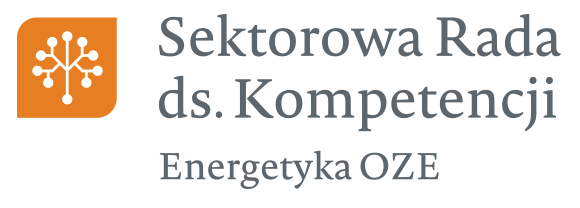Sektorowa Rada ds. Kompetencji – Energetyka OZE
Menu

The Warsaw HUB
ul. Rondo Daszyńskiego 2B
ul. Rondo Daszyńskiego 2B

Customer Service Office
bok[.+.]hubid.org
bok[.+.]hubid.org

+48 601 92 1111
+48 601 94 1111
+48 601 94 1111
Menu
Cele i obszary oceny działalności RADY OZE
Zgodnie z wytycznymi dotyczącymi organizacji i prowadzenia Rad Sektorowych, działalność Rady będzie oceniana w następujących obszarach:
- Funkcjonalność Rady – w tym skład, reprezentatywność, jakość pracy oraz produkty dostarczane przez Radę, sposób informowania członków o pracach Prezydium i Animatora Rady.
- Realizacja zadań ustawowych – aktywność grup roboczych, liczba i częstotliwość posiedzeń, efektywność komunikacji oraz zawieranie porozumień z interesariuszami sektora.
- Wykorzystanie przepisów prawnych – w zakresie Zintegrowanego Systemu Kwalifikacji, prawa oświatowego oraz przepisów dotyczących szkolnictwa wyższego.
- Zaangażowanie społeczne – ocena responsywności Rady na prośby o konsultacje społeczne oraz współpraca z administracją publiczną.
- Inicjatywy dodatkowe – inne działania Rady, które wykraczają poza wyżej wymienione obszary, a wspierają rozwój kompetencyjny w sektorze OZE.
Działalność Rady ma na celu wspieranie rozwoju sektora energetyki odnawialnej, a także zmniejszenie niedopasowania kompetencyjnego na rynku pracy poprzez dostarczanie rzetelnych informacji i rekomendacji, które przyczynią się do tworzenia wysokiej jakości oferty edukacyjno-rozwojowej.
Objectives and Areas of Activity Assessment of the Renewable Energy Council
Mission of the Renewable Energy Council
The Sectoral Council for Renewable Energy Competence (OZE) was established to align professional skills with the rapidly developing green energy market in Poland. Our mission is to identify workforce needs, support innovative educational solutions, and build strong connections between the business, academic, and governmental sectors.Main Objectives of the Renewable Energy Council’s Activities
Monitoring trends and workforce needs in the RES sector
- Labor market analysis in renewable energy sources
- Defining key future skills and qualifications
- Identifying skill shortages and developing training programs
- Cooperation with universities, vocational schools, and training institutions
- Developing new curricula aligned with sector requirements
- Organizing courses, certifications, and upskilling programs
- Assisting workforce adaptation to the energy transition
- Promoting best practices in competence management
- Supporting startups and innovative companies in the RES sector
- Developing guidelines on vocational qualifications in the RES sector
- Identifying regulatory needs related to employment in the sector
- Cooperating with governmental and international institutions
- Initiating R&D projects in the RES sector
- Supporting companies in implementing modern solutions
- Organizing conferences, workshops, and industry events
Areas of Activity Assessment of the Renewable Energy Council
Aligning competencies with labor market needs- To what extent do developed competency standards address sector needs?
- What are the outcomes of collaboration with universities and educational institutions?
- Number of new jobs created as a result of the Council’s activities
- Number of specialists trained in the RES sector
- Level of innovation and new technology implementation
Cooperation with partners
- Effectiveness of cooperation with companies, institutions, and organizations
- Level of private sector engagement in professional development
Promotion and public awareness
- Number of educational campaigns and industry events
- Reach of informational and promotional activities
- Effectiveness in securing funding for competence development in RES
- Efficiency in utilizing available EU and national funds
